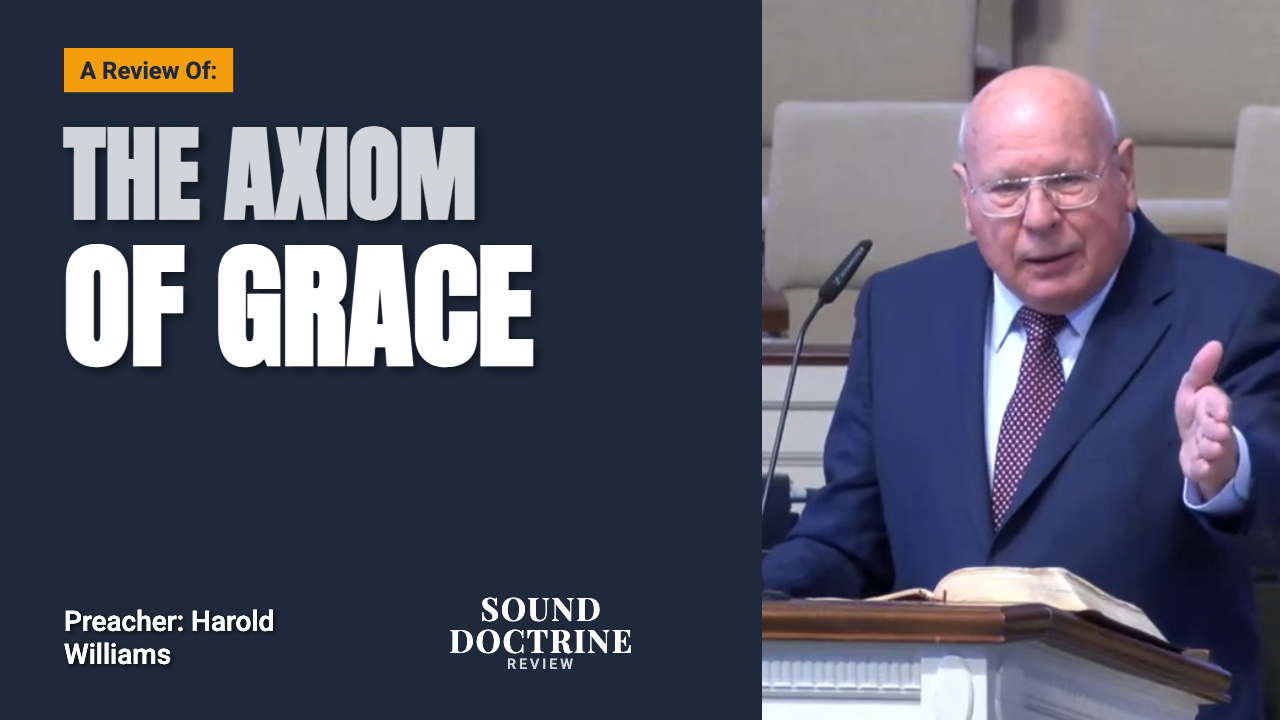
A Review of "The Axiom of Grace"
A Review of Pastor Harold Williams' Sermon "The Axiom of Grace"
In this sermon on John chapter 5, Pastor Harold Williams delivers a message that is rich with foundational Christian truth. While the entire sermon is an encouragement, a particular segment on the eternal security of the believer stands out as a masterful example of careful, balanced, and doctrinally sound preaching.
In the reviewed clip, Pastor Williams navigates one of the most critical and often misunderstood doctrines in the Christian faith. He begins by correctly explaining the biblical concept of salvation as a past-tense action with ongoing, present-tense results. He then moves to the heart of the matter, issuing a wise and necessary caution about the phrase "once saved, always saved."
This is where the sermon's strength becomes most apparent. Pastor Williams beautifully balances two essential truths:
-
The Unshakable Security of the Believer: He powerfully affirms the promise of John 10, declaring that a true believer "shall never perish, and no one shall snatch them out of my hand." This is a clear, confident declaration of the doctrine of eternal security, rooted in the power of God, not the performance of man.
-
The Necessary Evidence of a Godly Life: Immediately after affirming our security, he provides the crucial counterbalance: "While the work of salvation rests on what God wants to accomplish, our lifestyles need to match our claims that have been saved. If you say you are a believer, walk as a believer." This is not a contradiction, but a necessary clarification that is thoroughly biblical. The Apostle James makes this exact point when he states that "faith by itself, if it does not have works, is dead" (James 2:17). A life that shows no evidence of change or obedience brings the reality of one's faith into question, not because works save us, but because true, saving faith inevitably produces them.
This is the pinnacle of sound, pastoral teaching. He avoids the ditch of legalism (implying we can lose our salvation through sin) and the ditch of licentiousness (implying our lifestyle doesn't matter). Instead, he presents the biblical truth as found in passages like (Ephesians 2:8-10): We are saved by grace through faith, not as a result of works, but we are simultaneously "created in Christ Jesus for good works, which God prepared beforehand, that we should walk in them." Our good works are not the root of our salvation, but they are the necessary fruit of it.
In a time when this vital doctrine is often taught with imbalance, Pastor Williams' clear, scriptural, and careful handling of the topic is a refreshing and edifying example of sound doctrine.